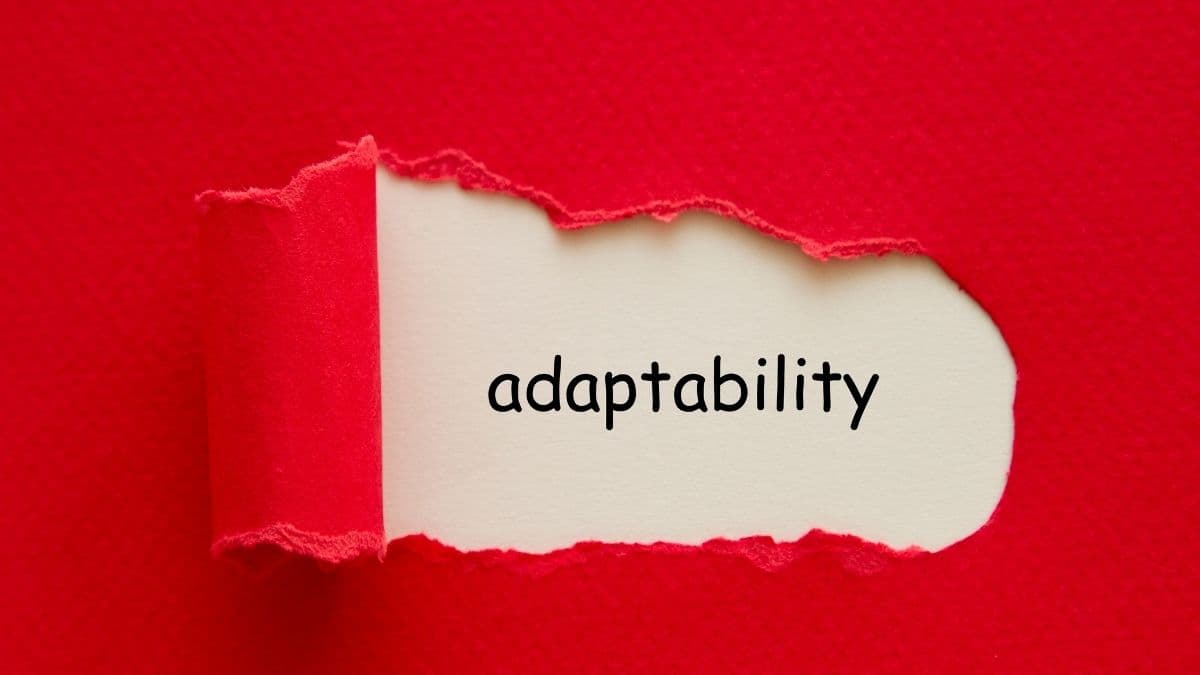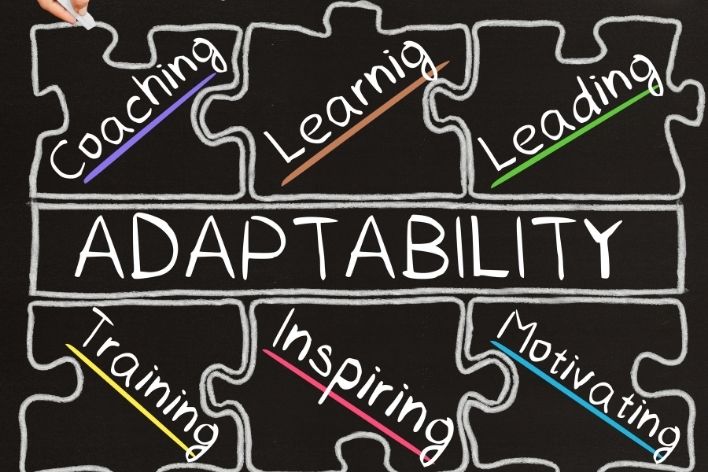Why Flexibility and Adaptability Are Key Skills for the Future?

Imagine yourself to be a superhero, not with super strength or super speed, but to have that superlative power of handling whatever befalls. That is what flexibility and adaptability skills could feel like. Both these skills are about managing to change and grow from whatever happens, which is super relevant regarding the future. In this article, we will discuss why flexibility and adaptability are so crucial, what they mean, and how to begin developing these competencies right now.
What Is Adaptability?
So exactly what is Adaptability? It is about being able to adapt to new situations. For example, you are playing a game, and suddenly the rules change. Well, some people would probably become upset or look puzzled, but this person who could adapt would take a deep breath and simply learn the new rules and get on playing. When things don't go as planned, being adaptable means not getting stuck.
For example, if your professor decides to hold a pop quiz, you might be caught off guard or nervous. But if you are flexible, you can keep calm, readjust, and do the best you can. The more flexible you are, the better you will handle changes and challenges at college and beyond.
Flexibility and Adaptability Skills
Flexibility and adaptability are pretty similar, but the general meaning of both terms is connected with resistance to changes and the ability to remain positive even when things go differently than expected. Flexibility refers more to an immediate ability to bend and adjust to changes fast, like a rubber band that stretches when pulled. Adaptability involves longer-term, often more structural changes to fit new environments or situations.
Think of the chameleon that changes color, blending into different surroundings. This chameleon develops both flexibility and adaptability skills because it changes immediately when it needs to, which is flexibility and can also live comfortably in different places, which is adaptability.
Why Are These Skills So Important for the Future?
The world is constantly in flux, and the future will contain new technologies, new jobs, and new ways of doing things. Continuing to have strong flexibility and adaptability skills will carry you through. Here's why:
New Jobs: Most of the current jobs may not be in scope in the future too. Simultaneously, many other jobs will emerge. If you have adaptability, then you can learn new things and also take up new responsibilities.
Technological Changes: Just think about how much technology itself has changed in recent years. If you are adaptable, you will not be daunted by the prospect of learning new gadgets or tools and be ready to move on with whatever is next.
Global Connections: More than at any other time in history, the world is interconnected. It is a common occurrence for people around the globe to work together. Adaptability skills are those that will allow you to work with others when their thinking or ideas differ.
Examples of Adaptability Skills
Here is a sampling of adaptability skills that can be developed through daily practice.
Cool in the Storm: When things do not work out as they were supposed to, such as if an outdoor sports game gets rained out, a person with skills of adaptability does not get angry. Instead, they devise another plan; for example, suggesting playing an amusing indoor game.
Learning New Things: Adaptability means openness to learning, perhaps things you have never tried before. You have always played soccer, then one day you gave it a go and tried basketball. That is adaptability.
Problem-Solving: The adaptable person faced with a sticky situation seeks various ways in which he can solve the issue at hand instead of just the same old way.

Cognitive Flexibility
Another important part of adaptability is something called cognitive flexibility. That is the ability to think about things differently. Maybe you are working on a puzzle and just can't find where one piece fits. A person with cognitive flexibility might try turning the piece in a new direction or even step back to see the bigger picture. It's all about not getting stuck on one way of thinking.
It is also highly helpful in solution finding because it allows one to think out of the box. If you're working on a group project and it is not going too great, a person with cognitive flexibility will think of new ways to approach your problem until they find a way that works.
What Is the Meaning of Flexible Personality?
You have probably heard someone be described as "easy-going" or "laid-back." More often than not, these are ways in which one might refer to someone with a flexible personality.
Flexible personality meaning refers to the open personality that never gets disturbed, in case things do not go according to a plan. If you are a flexible personality type, then you are willing to give a new thing a try, willing to listen to other peoples' ideas, and ready to change your plans accordingly. This type of flexibility is pretty significant in teamwork or even friendship-making, as it helps get along with various people and situations.
Skills of Adaptability
So, what are the particular adaptability skills? Here are some significant ones:
Open-mindedness: Being open to new ideas, experiences, and ways of doing things makes up a major part of being an adaptable individual. If you are open-minded, then you will always be ready to learn and grow.
Problem-solving: Adaptable people are great at finding solutions to problems, whether that problem happens to be unexpected or otherwise tough.
Emotional control: One feels irritated, troubled, and annoyed when things are not happening according to one's desires, but the adaptable person can control his emotions, keep himself cool, and get on with a remedy.
Resilience: Resilience is a person's ability to recover from adversity. Even when events go wrong, he keeps trying and does not stop.
How Flexibility and Adaptability Skills Are Developed
Perhaps you are more interested in learning how to develop your flexibility and adaptability skills. Fortunately, this is something that can be honed day in and day out.
Try New Things: Whether it is a new food, a different sport, or a new hobby, trying new things helps someone become more flexible and open to change.
Meet Obstacles: When something does not go right, do not give up. Think of it rather as an opportunity to flex your adaptability muscles.
Be Open to Criticism: Sometimes, people will give you advice or critiques. Rather than getting your feelings hurt, see if you can listen and learn from it. It shows that you're flexible and open to growth.
Problem-Solving Practice: As a problem arises, instead of getting stuck on one solution, come up with different solutions. The more creative you are, the more flexible you will be.
School and Work Flexibility and Adaptability
Flexibility and adaptability will also be helpful for your future, but right now, it may help you at school and later at work. Sometimes, changes in subjects or teachers take place at school, and at group projects, you will need to be flexible in collaboration with different classmates. When you work, your ability to adapt will let you become successful in learning new skills or when you just started working.
Most employers seek out those candidates who exercise strong adaptability skills in their job application or resume' because they understand that such individuals will put up with the job challenges that may, whatever the dynamics the job throws at them.
Why Does Everyone Need Flexibility and Adaptability?
The future is full of surprises. Nobody knows what will happen precisely, but with strong flexibility and adaptability skills, one will be ready for anything: learning new technologies, working with different people, or facing unexpected challenges, your ability to adapt helps you to succeed.
Conclusion
Having strong flexibility and adaptability skills is like having a superpower that will help one handle whatever comes their way. Be it school changes, learning something new, or working with others, being adaptable facilitates life and makes it more successful.
The more you practice these skills now, the better equipped you will be for whatever comes your way. Building flexibility and adaptability now will better prepare you for what's in store.
FAQs
1. Is adaptability skill taught or we are born with it?
Adaptability can, indeed, be learned! While there are individuals who are naturally more adaptable, one can learn ways to increase their flexibility and adaptability through practice and experience and keeping themselves open to new thoughts.
2. How does Adaptability help with stress?
Adaptability helps one to reduce the level of stress since one becomes open to change and is usually least affected when things fail to run as planned. Alternatively, one does not get overwhelmed by a sudden change in events but instead uses his time to change and find solutions.
3. Is cognitive flexibility the same thing as adaptability?
Adaptability involves cognitive flexibility. While cognitive flexibility restricts switching between different ideas or different ways of thinking about something, adaptability involves broader adjustments in coping with new environments or situations.
If you found this article helpful, share it with your friends and family so they can learn about the importance of flexibility and adaptability skills too. Together, we can all be ready for whatever the future brings.
Other Related Sections
NCERT Solutions | Sample Papers | CBSE SYLLABUS| Calculators | Converters | Stories For Kids | Poems for kids| Learning Concepts I Practice Worksheets I Formulas | Blogs
Admissions Open for
CBSE Schools In Popular Cities
- CBSE Schools in Bangalore
- CBSE Schools in Mumbai
- CBSE Schools in Pune
- CBSE Schools in Hyderabad
- CBSE Schools in Chennai
- CBSE Schools in Gurgaon
- CBSE Schools in Kolkata
- CBSE Schools in Indore
- CBSE Schools in Sonipat
- CBSE Schools in Delhi
- CBSE Schools in Rohtak
- CBSE Schools in Bhopal
- CBSE Schools in Aurangabad
- CBSE Schools in Jabalpur
- CBSE Schools in Jaipur
- CBSE Schools in Jodhpur
- CBSE Schools in Nagpur
- CBSE Schools in Ahmednagar
- CBSE School In Tumkur











